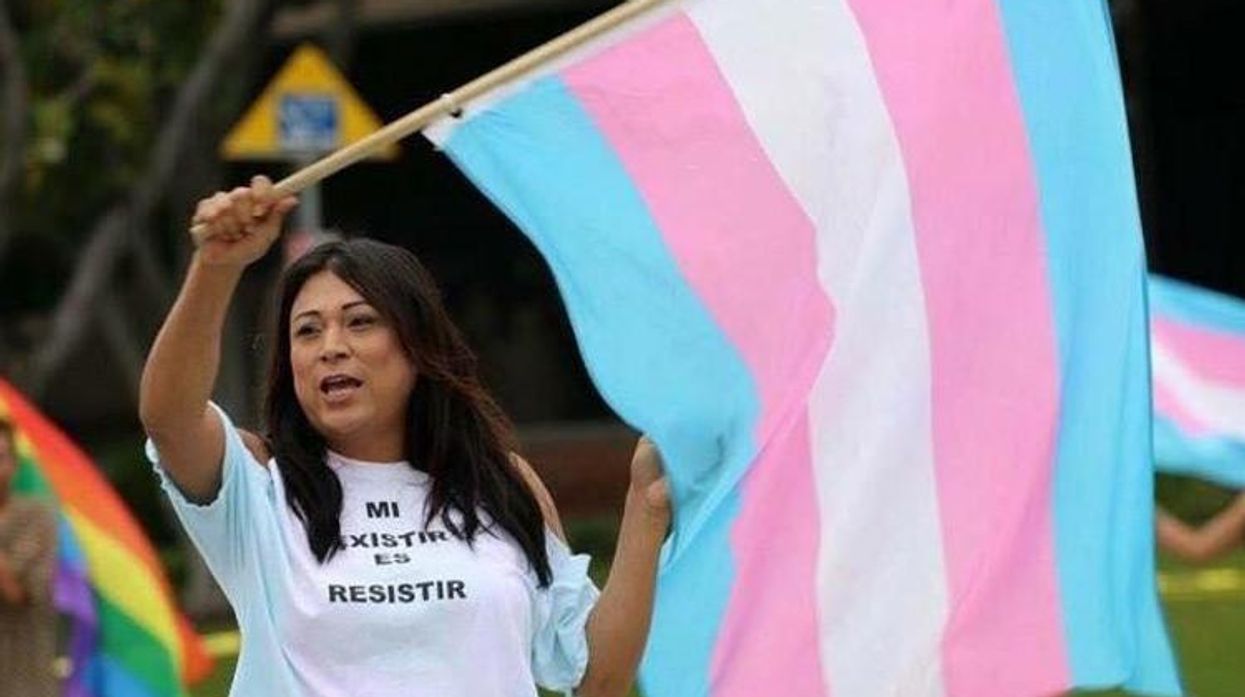Working and living at the intersection of two of the most vulnerable communities in our nation today has not been easy, both the LGBTQ and migrant communities have been targets of unrelenting attacks under this administration. The attacks from this administration have sought to dehumanize members of my community and tell us that our love, our bodies, and our feelings are immoral. What has also been increasingly clear is that for us -- trans, queer, low-income, and undocumented people -- hiding is not an option.
Despite these attacks, and regardless of which party holds office, trans women -- especially trans women of color -- have continued to lead the movement to protect our communities from discrimination and abuse. In 2015, I led a public disruption demanding that President Obama release all LGBTQ immigrants from detention centers. After that action went viral, we started a new campaign called #EndTransDetention as part of the larger campaign #Not1More, designed to free undocumented LGBTQ people from oppressive detention centers where many trans people are assaulted, abused, and incarcerated in facilities that do not correspond with their gender identity.
Disruption for liberation requires risk-taking to make positive change. When you strategically challenge power in this way you must simultaneously protect your community. Up until now I've focused most of my efforts on giving a voice to queer and undocumented Latino/a immigrants, because I believe we are one of the most marginalized communities in our nation today.
But we are constantly inspired by the work of our trans elders who have been forging the way since the 1960s. I am inspired by leaders like Sylvia Rivera, Marsha P. Johnson, and Renee Richards from the civil rights era as well as leaders of today, like Laverne Cox, Janet Mock, and Isa Noyola. Trans leaders have been on the front lines by ourselves for far too long. We need organizations and foundations to lift up and support our work, and we need to build our movements for liberation together. In fact, this week I am being honored by the Astraea Lesbian Foundation for Justice at its Fueling the Frontlines gala aimed at inspiring an intergenerational group of activists and raising funds to provide critical resources to grassroots organizers around the world.
Astraea is one of the few philanthropic organizations working to further the rights of LGBTQI people by funding the grassroots -- this is exactly the type of organization we need more of to support the work we are doing in our communities. But with the unprecedented levels of discrimination we are seeing today we must multiply the support for grassroots organizers and activists if we want to be successful.
Recently I spoke with students at Whitman College about the issues facing our communities and asked if they knew how many trans women had been killed this year. Not one person knew! Ten transgender women have been murdered in the past four months alone, compared to 26 throughout all of 2016. At this rate we'll surpass that number.
Being a trans immigrant today is dangerous; violence surrounds us daily. The odds are stacked against us, but we must continue fighting for our rights, speaking up for ourselves and for others. This means that one of the biggest jobs that trans leaders have today is to educate and to raise consciousness, inside and outside of our own groups. We need to educate people on the vicious realities and daily violence that our communities face.
As activists, we must reach beyond our own borders and remember that the only way we can win is if all of us come together in our fight for social justice. We must continue to uplift the voices that systemically suffer the most, which means speaking with people of color, LGBTQ people, and undocumented people and hearing our stories of injustice, survival, and resilience. We need to rock the boat in order to help people understand the oppressive nature of our system and how to break away from it. The only way to change this system is to listen to those most harmed by it.
No one is free until all of us are free to show up as who we are -- where we are. The job of a disruptor is to remember your voice is your power and to utilize it always and in all ways.
JENNICET EVA GUTIERREZ is an undocumented trans Latina activist. She was born in Tuxpan, Jalisco, Mexico. She is passionate about social justice. She lives in Los Angeles and is an active member of Familia: Trans Queer Liberation Movement.















Charlie Kirk DID say stoning gay people was the 'perfect law' — and these other heinous quotes
These are some of his worst comments about LGBTQ+ people made by Charlie Kirk.